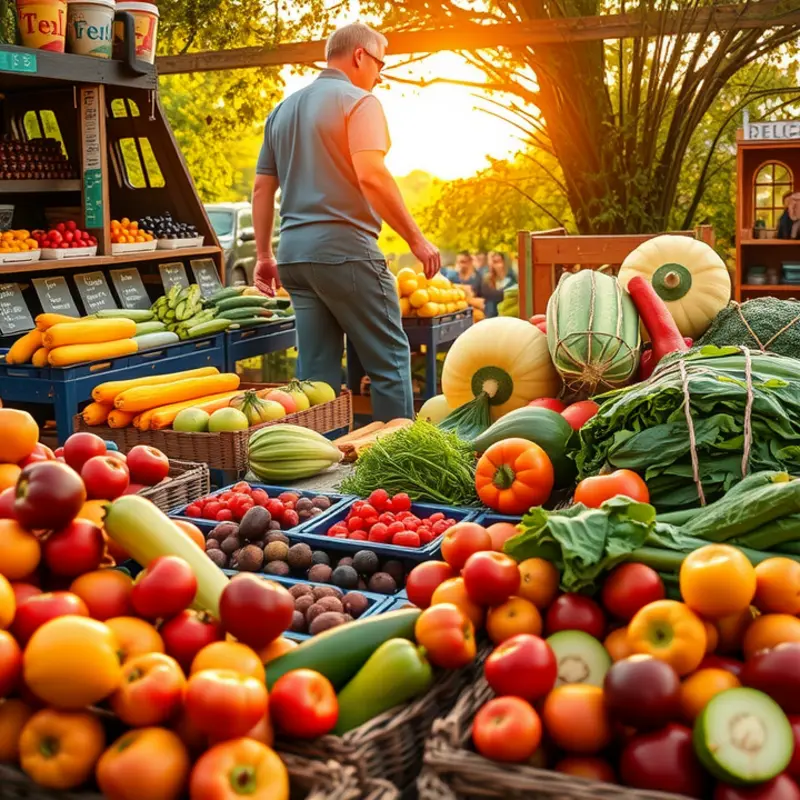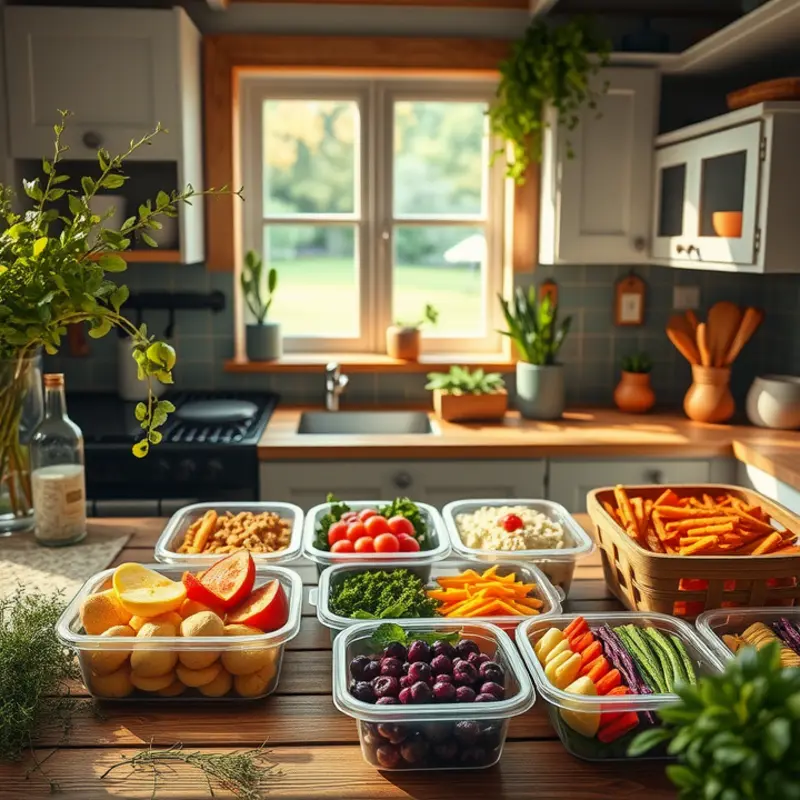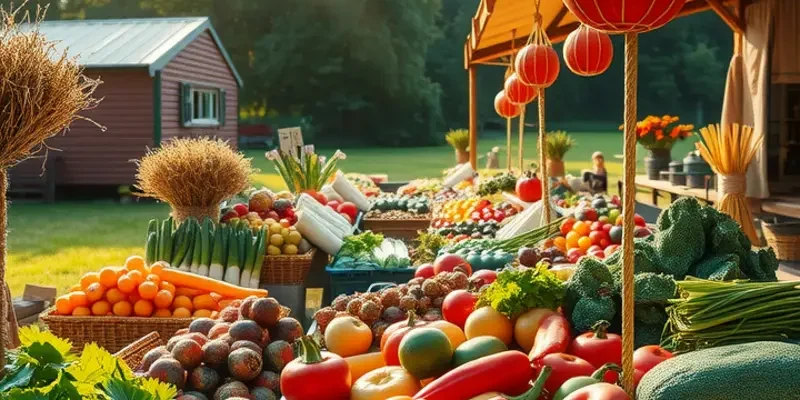Embracing eco-friendly meal prep isn’t just a trend, it’s a vital step towards sustainable living. By prioritizing environmentally conscious food choices, individuals can significantly reduce their carbon footprint and contribute positively to the planet’s health. Through mindful planning and preparation, anyone can develop weekly menus that not only nourish the body but also protect our vital ecosystems. Let’s explore practical strategies to make meal prep both sustainable and enjoyable.
Crafting a Greener Grocery List

Crafting a grocery list thoughtfully can make your meals sustainable and waste-efficient. Start by focusing on local produce. Buying from nearby farmers’ markets or participating in community-supported agriculture (CSA) programs not only reduces your carbon footprint but also supports the local economy. Local produce typically requires less packaging and transportation, resulting in significant energy savings.
When selecting items, prioritize organic choices. Organic farming minimizes the use of synthetic pesticides and fertilizers, which are detrimental to soil health and biodiversity. By opting for organic, you contribute to healthier soil and ecosystems, fostering long-term agricultural sustainability.
Seasonal eating is another crucial element. Familiarize yourself with which fruits and vegetables are in season to naturally align your meals with the environment’s cycle. This practice decreases the need for out-of-season imports, which tend to increase food miles and energy use. Additionally, seasonal produce often tastes better and is more nutrient-rich, making your meals both enjoyable and nourishing.
Moreover, packaging plays a significant role in sustainable shopping. Whenever possible, choose whole foods over pre-packaged items. This small shift drastically reduces the amount of plastic waste you generate. For instance, buying bulk grains or seeds allows you to use your own containers, minimizing single-use plastic. Look for stores that support zero-waste shopping, where you can refill staples without contributing to landfill waste.
As you prepare your list, it helps to keep it aligned with your planned meals. This not only prevents impulse buying but also saves you money by reducing food waste. Identify essential items that are versatile and can be used across different meals. These staples ensure you have a balanced diet while maintaining a sustainable kitchen. For ideas on reducing food waste during cooking, check out this helpful guide on low-waste prepping.
Ultimately, crafting a greener grocery list can offer benefits beyond environmental impact. It fosters mindful eating habits, encourages nutrient-rich diets, and even sparks creativity in the kitchen as you work with what nature provides each season. Each thoughtful choice you make echoes towards a collective positive footprint on the planet.
Sustainable Meal Prep Techniques

Once your groceries are at home, implementing sustainable meal prep techniques can help minimize waste and maximize nutritional value. Here are effective strategies to consider:
-
Batch Cooking: This involves preparing larger quantities of meals or staples like grains, legumes, and soups. Batch cooking allows you to economize both time and energy. By optimizing the use of your oven or stovetop, you save on energy costs. Portion these meals into reusable containers for quick, ready-to-eat options throughout the week. This practice not only saves time but also reduces the temptation to order takeout, which often comes with excessive packaging.
-
Mindful Portioning: Serving the right amount of food helps in preventing unnecessary leftovers. Consider using smaller plates to encourage smaller portions or weigh ingredients for precise cooking. This drives a conscious approach to eating, maintaining the balance between nutritional intake and waste minimization. For tips on mindful eating, you might find addressing unconscious eating useful.
-
Freezing: Your freezer is your ally in preserving food freshness and extending its lifespan. Freeze surplus vegetables or cooked meals to prevent spoilage and ensure you have reserves when needed. Be mindful of using eco-friendly or reusable freezer bags to reduce waste.
-
Composting: Establishing a compost bin for scraps and vegetable peels transforms waste into nutrient-rich soil. This is an invaluable technique for eco-conscious individuals. Composting not only reduces landfill waste but also rejuvenates your garden, contributing to a more sustainable loop.
-
Eco-Friendly Containers: Transition from plastic to glass or stainless steel containers for storing food. These materials are more durable, less likely to leach chemicals, and help maintain food quality better. Additionally, consider using beeswax wraps as an alternative to cling film.
Implementing these techniques can transform your meal prep routine into an eco-friendly initiative while promoting healthy eating habits. These strategies, when practiced regularly, help create a significant positive impact on the environment and your personal health.
Final words
By adopting eco-friendly meal prep practices, individuals can significantly contribute to a healthier planet while enjoying delicious, homemade food. Focusing on local and seasonal ingredients minimizes transportation emissions, while strategies like batch cooking and composting help reduce waste. With every conscious meal prepared, you participate in a larger movement for sustainability, making a positive impact on the environment.
Embrace these practices and share your journey with others to inspire a community focused on environmental health. Together, the little steps we take towards becoming more mindful of our food choices can lead to monumental change.








